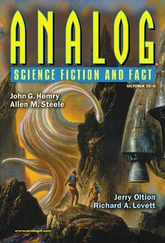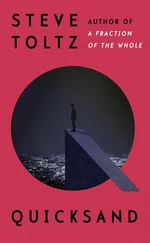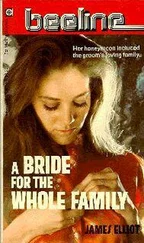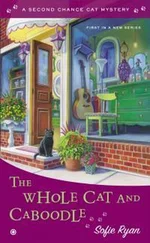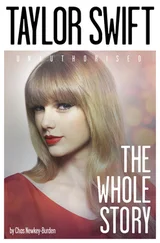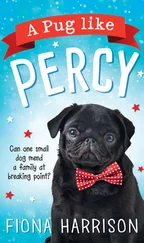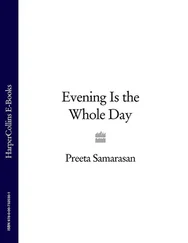Ned sometimes gave me a break. He took my place and gave Dad water and took over pretending to listen to his ceaseless droning. On those occasions I crawled over the half-conscious bodies of my companions to get to the deck for a breath of air. Above me the sky opened up like a cracked skull. The stars were glistening like beads of sweat. I was awake, but my senses were dreaming. My own sweat tasted of mango, then chocolate, then avocado. This was a disaster! Dad was dying too slowly and in too much pain. Why didn’t he just kill himself? Why do staunch atheists put up with so much futile agony? What was he waiting for?
Suddenly I remembered. The poison!
I ran down and climbed over the human mattress and whispered feverishly in his ear. “Do you want the poison?”
Dad sat up and looked at me with glowing eyes. Death can be controlled, the eyes sang. Our vital powers were somewhat recharged, contemplating the poison.
“Tomorrow morning at dawn,” he said. “We’ll do it together.”
“Dad- I’m not taking the poison.”
“No, of course not. I didn’t mean that you would take it. I just meant that I’d take it and you’d watch.”
Poor Dad. He always hated loneliness, and now he was faced with the deepest, most concentrated form of loneliness in existence.
But at dawn it was raining, and he didn’t want to commit suicide in the rain.
When the rain cleared, it was too hot to end it all.
At night he wanted to let out his final breath in the warm glare of the sun.
In short, he was never ready. He vacillated interminably. He always found a new excuse not to do it: too rainy, too cloudy, too sunny, too choppy, too early, too late.
Two or three days of agony passed in that way.
***
It finally happened just after sunset around two or three weeks at sea. A wave of foam crashed below deck. We were half drowned. The shrieking didn’t help anything. When the ocean settled, Dad sat up in the dark. He suddenly had trouble breathing. I gave him some more water.
“Jasper, I think this is it.”
“How do you know?”
“I just know. I was always suspicious of the way in movies people knew when their time was coming, but it’s true. Death knocks. He actually knocks.”
“Can I do anything?”
“Take me up top, wait until I’m dead, and push me off the boat.”
“I thought you didn’t want a watery grave.”
“I don’t. But these bastards have been eyeing me like I’m just one big lamb chop.”
“Cancer hasn’t exactly made you appetizing.”
“Don’t argue with me. Once I’m dead, I don’t want to spend another minute on this boat.”
“Understood.”
The Runaways didn’t take their eyes off us. They spoke to each other in quiet, conspiratorial tones as Ned helped me get Dad out of there.
Up on deck his breathing grew easier. The Pacific air seemed to do him some good. The vast movement of the ocean pacified him. Well, at least I’d like to think so. These were his final moments, and I’d like to think that at the end he ceased to find his cosmic insignificance insulting, that finally he felt something whimsical in meaning nothing, that it was even somewhat amusing to be an accident in the appalling wasteland of space-time. This was my hope- that, staring out at the ocean’s majestical performance in surging blue and facing the mad sea wind, he might have cottoned on to the idea that the universal stage show was a bigger drama than he could ever have dreamed to land a key role in. But no, he didn’t put his existence into perspective at all- he was humorless about it right to the end. He went to his death a martyr to his own secret cause, unwilling to denounce himself.
I record his last minutes in the sad spirit of a biographer too close to his subject.
The night was silent, save for the creaking of the boat and the gentle lapping of the water. The moon hung brightly above the horizon. We were heading straight for it. The captain was steering us into the moon. I imagined a hatch door opening. I imagined us drifting inside. I imagined the door slamming shut behind us and the sound of crazy laughter. I imagined these things to distract me from the reality of my father’s death.
“Look, Martin, look at the moon,” Ned said. “Look at how it has been painted on the sky. God is truly an artist.”
That gave Dad a burst of energy. “I hope not, for all our sakes,” he said. “Honestly, Ned, have you ever actually met an artist? These are not nice people. They’re selfish, narcissistic, and vicious types who spend their good days in a suicidal depression. Tell him, Jasper.”
I sighed, knowing this speech by heart. “Artists are the kind of people who cheat on their mistresses, abandon their legitimate children, and make those who are underprivileged enough to know them suffer terribly for their efforts to show them kindness,” I said.
Dad raised his head to add, “And you proudly label God an artist and expect him to take care of you? Good luck!”
“You lack faith.”
“Have you ever wondered why your God requires faith? Is it that heaven has a limited seating capacity and the necessity of faith is God’s way of keeping the numbers down?”
Ned looked at him with pity, shook his head, and said nothing.
“Dad, give it a rest.”
I gave him another couple of painkillers. After swallowing, he gasped and fell unconscious. Ten minutes later he began ranting deliriously.
“Hundreds…millions…Christians salivating…heaven a fancy hotel where…won’t be bumping into Muslims and Jews at the ice machine…Muslims and the Jews…no better…no budging…modern man…good teeth…short attention span…supposed to be…turmoil of alienation…no religious worldview…neurosis…insanity…not true…always religion among creatures…who…die.”
“Save your energy,” Ned said. He could have said “Shut up” and I wouldn’t have held it against him.
Dad’s head fell back into my lap. He couldn’t have had more than a couple of minutes left and he still couldn’t believe it.
“This is really incredible,” he said, and took a deep breath. I could tell by his face that the painkillers were kicking in.
“I know.”
“But really! Death! My death!”
He slipped into sleep for a few minutes, then his eyes sprang open with a blank expression behind them, as bland as a bureaucrat’s. I think he was trying to convince himself that the day he died was not the worst day of his life but just an average so-so day. He couldn’t keep it up, though, and groaned once more through clenched teeth.
“Jasper.”
“I’m here.”
“Chekhov believed that man will become better when you show him what he is like. I don’t think that’s turned out to be true. It’s just made him sadder and lonelier.”
“Look, Dad- don’t feel pressured to be profound with your dying words. Just take it easy.”
“I’ve said a lot of drivel in my life, haven’t I?”
“It wasn’t all drivel.”
Dad took a few wheezing breaths while his eyes rolled around in his head as if they were searching for something in the corner of his skull.
“Jasper,” he croaked, “I have to admit something.”
“What?”
“I heard you,” he said.
“You heard what?”
“In the jungle. When they came. I heard your voice warning me.”
“You heard me?” I shouted. I couldn’t believe it. “You heard that? Why didn’t you do anything? You could have saved Caroline’s life!”
“I didn’t believe it was real.”
We didn’t say anything for a long while. We both gazed silently into the moving waters of the sea.
Then the pain started up again. He howled in agony. I felt afraid. Then fear grew into panic. I thought: Don’t die. Don’t leave me. Don’t leave us. You’re breaking up a partnership. Can’t you see it? Please, Dad. I’m absolutely dependent on you, even as your opposite, especially as your opposite- because if you’re dead, what does that make me? Is the opposite of nothing everything? Or is it nothing?
Читать дальше

